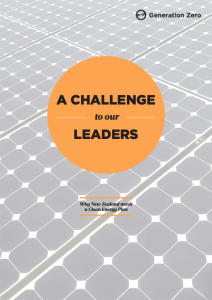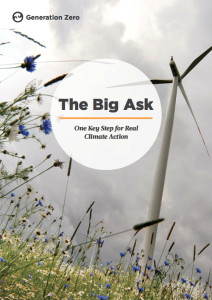[youtube=https://www.youtube.com/watch?v=c4fOcNiusRg&w=480]
This guest post is by Alister Barry, producer and co-director of the new documentary Hot Air, which will be premiered in Wellington next week. Hot Air is screening in the New Zealand International Film Festival around the country over the next month.
Hot Air is a story of compromise, broken promises and corporate pressure, of misinformation and pseudo-scientific propaganda. It’s also a story of good intentions. The 1989 Labour government under Geoffrey Palmer began to map out the first emissions policy. In the 1990s Simon Upton, the National government’s minister responsible for climate change policy tried to put a carbon tax in place as did his successor Labour’s Pete Hodgson. After 2005 David Parker struggled to pass an emissions trading scheme.
I began work on Hot Air in 2009 thinking it might take a couple of years. I recall one of my partners saying, “You better get it done quickly, because within a few years the film will be out of date. Climate change will have been confronted and dealt with.” No such luck.
I soon found that while there have been some books written about the history of the politics of climate change in the UK, the US and elsewhere, there was no comprehensive account telling the New Zealand story. I spent a lot of time in the National Library doing the basic slog of getting the history down on paper. Then I had to condense it into a documentary script before beginning actually making the film.
One benefit of the long gestation period was the unexpected number of key figures that agreed to be interviewed for the film. Experts from both the environmental and economic fields, newspaper editors, businessmen, and a wide range of political figures including National’s Simon Upton, and Labour’s Pete Hodgson & David Parker, all one-time Ministers of Environment, contributed. Many of the major players (particularly Labour’s ruffled former Minister of Environment, Pete Hodgson) clearly welcomed the opportunity to tell their stories, as well as vent some frustrations!
Editing has taken a couple of years finding and fitting together archive footage with the original interview material and condensing that into an informative, and we hope entertaining film. Co-director and editor Abi King-Jones has done a masterful job creating a film that is a pleasure to watch.
On one level the film attempts to provide an understanding of the political landscape on which those of us who want to see some effective action on climate change will have to fight, on another level it is a case study of the extent to which power in our society has shifted to the corporate elite and away from the rest of us.
Continue reading “Hot Air: the sorry tale of climate policy in New Zealand”

 In his
In his 


 Late last week, New Zealand’s far right ACT party was pleased
Late last week, New Zealand’s far right ACT party was pleased
You must be logged in to post a comment.